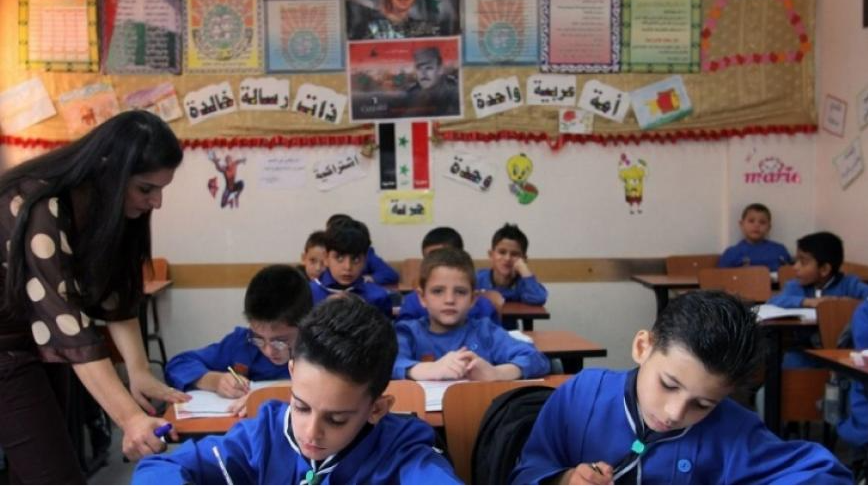Schools in the capital Damascus and its countryside suffer from a shortage and lack of fuel for heating, and other schools suffer from the rationing of fuel by their administrations, forcing students to study in a very cold environment. To add to the many long-standing problems of education, a new problem with the onset of winter has many repercussions in terms of damage to the health of education and the health of students, according to a number of teachers interviewed by Syria TV.
Students in Damascus and its countryside complain to their families that they are exposed to cold and frost in their classrooms, amid talk of school administrations about the lack of sufficient fuel for heating during school hours.
Students without heating
“Every school day we spend without heating on the pretext of not having enough fuel,” Hossam, a seventh-grader at a Damascus school, told Syria TV. Hossam’s situation is no different from other school students who start and finish their school day with a deadly cold affecting education and health.
The school has approximately 600 students in 16 classroom divisions. That is, there are sixteen heaters operated daily in sufficient quantity to break the toxicity of the cold, according to the headmaster. She claimed that she does not allow the installation and operation of heating systems in the administrative halls.
Read Also: Unusual Winter in Syria
“The school’s fuel allowance is 1,200 liters, but the Ministry of Education has filled half of the quantity only, 600 liters,” the headmaster of the school, told Syria TV anonymously. She added that the 600 liters filled were carefully spent by rationing that amount until it is sufficient.
However, students at the same school confirmed to Syria TV that the school administration does not turn on the heaters at all and that the days when the heating was turned on during the current semester are very minimal and could be counted on one hand.
“The ministry delayed the delivery of the school’s fuel allocations until the beginning of this month, and until today it has only delivered the first batch of 1,400 liters out of 2,400 liters of school allowances,” Khaled (alias), the director of a school in rural Damascus, told Syria TV.
Because the school principal does not know when the second batch will be delivered, he follows the fuel rationing system by distributing one liter per day for each classroom and five liters per week for the administrative rooms since his school is located in a very cold area.
Amer, 40, a mathematics teacher at a school in Rural Damascus (Artouz), said, “I feel sadness and pain about what is happening in schools under the control of the regime, as if it is not enough that there are no teachers for all subjects, there are those who study in a cold and crowded classroom.”
What is happening in the previous school applies to most schools in Syria today. The lack of fuel, and sometimes its unavailability and difficulty in obtaining it, constitutes an additional deprivation for school students whose schools are still suffering from various types of crises at all levels, whether educational or logistical, according to the testimony of teacher Amer.
School principals in Damascus and its countryside complained that the class quota had fallen to one liter per day, which indicated an environment that was not suitable for education and learning for students in various Syrian schools.
This article was translated and edited by The Syrian Observer. The Syrian Observer has not verified the content of this story. Responsibility for the information and views set out in this article lies entirely with the author.


